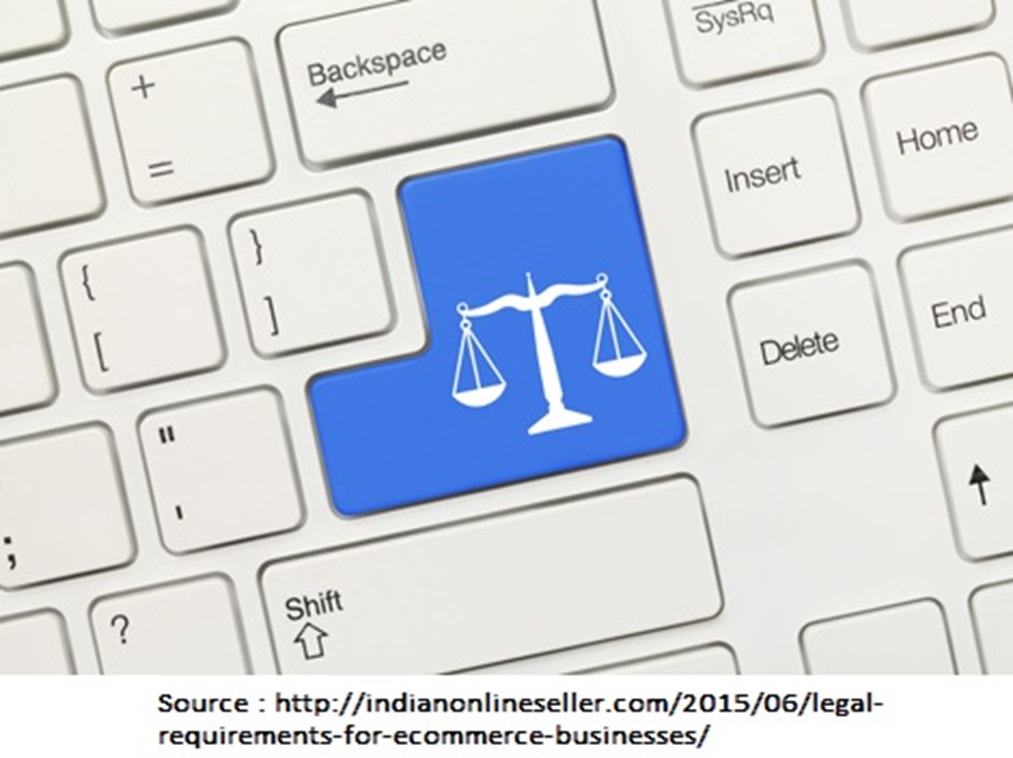In this second part of the series, we have tried to cover types of FDI allowed and routes for Ecommerce Companies. We also have mentioned IP Law, it’s infringement and Jurisdiction issues.
Foreign Direct Investment
Foreign direct investment (“FDI”) in India is regulated under the Foreign Exchange Management Act 1999 (“FEMA”).
The FDI Policy lays down two entry routes:-
- Automatic Route where foreign investments do not require prior approval of the government
- Government / Approval Route where prior approval of the Government of India through Foreign Investment Promotion Board (“FIPB”) is required.
What is E-commerce according to FDI Policy:-
“E-commerce activities refer to the activity of buying and selling by a company through the e-commerce platform”
The current regulatory status with respect to foreign investments in the e-commerce space is as follows:-
- 100% FDI is allowed under the automatic route (i.e. no FIPB approval is required) in companies engaged in B2B e-commerce.
B2B: E-commerce has enabled various businesses to build new relationships with other businesses for efficiently managing several of their business functions. - No FDI is allowed in companies which engage in single brand retail trading by means of e-commerce.
- No FDI is allowed in companies which engage in multi-brand retail trading by means of e-commerce.
These restrictions are related to a sale of goods and not services.
These express restrictions on FDI in B2C businesses has led to development of marketplace models, where the online platform acts as a trading platform rather than a trader. In this case, the online platform’s clients are various sellers who own the inventory of goods and advertise their goods on the online platform. The ultimate sale of the goods is completed between the third party seller and the end consumer.
There are other innovative models which are being adopted to bring in investments into companies engaged in e-commerce or companies which directly or indirectly collaborate with e-commerce businesses such as:-
- Investing into companies engaged in wholesale trading (where 100% FDI is allowed under the automatic route subject to certain conditions*) which owns inventory and maintains the online B2B platform.
(*) some of the conditions to be fulfilled for investing into a wholesale trading company are:
- Wholesale trade to group companies should not exceed 25% of the total turnover of the venture
- A wholesale trader cannot open retail shops to sell to the consumer directly.
- Full records indicating all the details of the sales (such as a name of the entity, kind of entity, registration/ license/ permit etc, number and amount of sale) to be maintained on a daily basis.
- Investing into companies providing technology services (where 100% FDI is allowed under the automatic route) which provide technology related services on an arm’s length basis to e-commerce platforms.
E-commerce Acquisitions
Flipkart – WeHive Technologies Pvt. Ltd
Flipkart has bought a stake in the WeHive Technologies Pvt. Ltd. This was done by Flipkart to concentrate on mobile-focused companies.
Mahindra – BabyOye
The Mahindra Group has acquired the online baby-care product brand BabyOye. They have done this to integrate their offline store Mom&Me with the online store.
Flipkart – AdiQuity
In March 2015 Flipkart acquired mobile ad network AdiQuity. It is helping Flipkart into fee-based businesses such as online advertising and brand consulting for vendors.
Snapdeal – Freecharge
One of the biggest acquisitions of 2015 till now is Snapdeal acquiring Freecharge by paying over Rs. 2,800 crores ($450 million) in cash and stock.
Reasons for Merger and Acquisitions
- To limit competition
- Utilize underutilized market power
- Increase the value of combined enterprise.
- Diversification
- Maximize Firm’s value.
Impact of Merger and Acquisitions
- Open Up Multi Brand FDI
- Investor activism
- Employment
- Forcing retailer to sell at lower price
- Balance of Payment
Intellectual Property (IP)
Some of the main forms of intellectual property protection that an e-commerce business would be concerned about are as follows:
- Copyrights for the protection of the content, design of the websites, the software underlying the platform and the content transmitted over such platforms.
- Trademarks to protect the words, taglines or logos with which any person would identify with the e-commerce platform/ business. In addition to protecting their own trademarks, an e-commerce business that sells or markets other brands on its portal would have to ensure that such business’ trademarks are protected as well.
- Patents to protect (where allowed by law) the functionality of the software and the methods underlying such e-commerce. In India, there is no patent protection for a computer programs per se and hence there is a need to look at alternate methods to protect software.
When any e-commerce platforms are created, the enterprise should use either proprietary technology or validly licensed the technology.
Some of the most common forms of liability for infringement of IP in India would be:
In order to evaluate the need for protecting one’s IP and/ or not infringing on a third party’s IP, it is vital to have a grasp of the extent of liability for infringement of an IP.
- Injunction (temporary or permanent) against the infringer stipulating that the infringing activity shall not be continued.
- Damages to the extent of lost profit or damages to remedy unjust enrichment of the infringing party.
- Order for accounts of profits
- Order for seizure and destruction of infringing articles.
Jurisdiction Issue
In any dispute, one of the primary issues that a court determines is whether or not the said court has jurisdiction to try the dispute; a court must have both subject-matter jurisdiction (i.e. jurisdiction over the parties involved in the dispute) and territorial jurisdiction.
The increased use of the internet has led to a virtual world which is not possible to be restricted in terms of traditional concepts of territory; this has led to complications in determining jurisdiction.
IT (Information Technology) Act
Section 1(2) of the IT Act read along with Section 75 of the IT Act provides that
- the Act shall extend to the whole of India and, save as otherwise provided under the Act, it shall apply also to any or contravention thereunder committed outside India by any person and
- the Act shall apply to any offence or contravention committed outside India by any person if the act or conduct constituting the offence or contravention involves a computer, computer system or computer network located in India.
Indian Penal Code, 1869 (“IPC”)
Section 3 of the IPC provides that any person who is liable, by any Indian law, to be tried for an offence committed beyond India shall be dealt with according to the provisions of the IPC for any act committed beyond India in the same manner as if such act had been committed within India.
International Jurisprudence
The US courts have developed the “minimum contacts” theory whereby the courts may exercise personal jurisdiction over persons who have sufficient minimum contacts with the forum state. These “minimum contacts” may consist of physical presence, financial gain, stream of commerce, and election of the appropriate court via contract.
There does not seem too much jurisprudence in India on the issue of jurisdiction in cases of e-commerce.
CONCLUSION
From the initial years when the internet was a new phenomenon to recent times where the internet has become a basic necessity for every household in most metropolitan cities, the e-commerce industry has come a long way.
The legal system has constantly tried to catch up especially with the enactment of the various rules under the IT Act to deal with a host of issues emerging from the use of internet. Moreover, the IP issues in e-commerce transactions have taken a new form with users finding loopholes to not only easily duplicate material but also mislead other users. Hence, much more is needed to effectively regulate the same.
To Read the First Part of the Series. Click Here.




